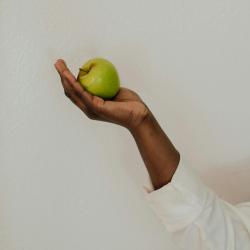Exploring the Different Types of Meditation: Which Is Right for You?
In a world buzzing with constant stimulation, stress, and distractions, meditation offers a serene refuge – a practice that is as diverse as it is ancient. With roots dating back thousands of years, meditation encompasses a variety of techniques designed to cultivate mindfulness, concentration, and tranquility. But with so many types of meditation available, how do you choose the one that's right for you? Understanding the key differences can guide you on your personal journey toward mental clarity and emotional stability.
Mindfulness Meditation
Mindfulness meditation, inspired by Buddhist teachings, is one of the most popular forms practiced today. This technique involves paying attention to your thoughts as they pass through your mind, observing them without judgment or attachment. The focus is on staying present in the moment, often through awareness of the breath or other bodily sensations.
Best For: Those looking to enhance self-awareness and reduce stress. It's particularly beneficial for beginners due to its straightforward, accessible approach.
Transcendental Meditation (TM)
Transcendental Meditation involves silently repeating a specific mantra – a word or sound – to settle the mind into a state of profound rest and relaxation. This technique was popularized by Maharishi Mahesh Yogi and is practiced for twenty minutes twice a day.
Best For: People seeking a structured practice with a certified instructor. It's ideal for those looking to integrate a regular practice into their busy schedule for stress relief and clarity.
Guided Visualization
Guided visualization involves focusing on mental images of places or situations you find relaxing. It is typically led by a guide or a recording, making it an excellent choice for those who have difficulty staying focused on their own.
Best For: Individuals who respond well to imagery and instruction. It’s also effective for goal-setting and achieving specific outcomes like enhancing creativity or performance.
Loving-Kindness Meditation (Metta)
Loving-Kindness Meditation focuses on developing an attitude of love and compassion towards oneself and others. Practitioners repeat phrases that express goodwill, such as “May you be happy” and gradually extend these intentions outward to the wider world.
Best For: Those looking to cultivate empathy and love in their lives, improve emotional well-being, and enhance their relationships with others.
Body Scan Meditation
Body scan meditation systematically directs focus to different parts of the body, noticing any sensations, tension, or relaxation. It promotes body awareness and is often combined with mindfulness.
Best For: Reducing stress and tension, and for those who might be dealing with chronic pain. This type helps in establishing a mind-body connection and enhancing bodily awareness.
Zen Meditation (Zazen)
Zen meditation, or Zazen, is practiced sitting with the back straight and focusing on the breath and its rhythm. Originating from Zen Buddhism, it usually takes place in a dedicated space called a zendo.
Best For: Individuals looking for spiritual growth through disciplined practice. It suits those who are comfortable with silence and maintaining specific postures for longer periods.
Vipassana Meditation
Vipassana, meaning “insight,” is one of India’s most ancient techniques, aiming to purify the mind through observation of bodily sensations. Typically practiced during multi-day retreats, it emphasizes a strict schedule and moral code.
Best For: Those interested in deep self-exploration and introspection. It's suited for people willing to commit to intense periods of practice and self-discipline.
Kundalini Yoga
Kundalini meditation combines breath, movement, chanting, and focus to awaken energy at the base of the spine and draw it upward through the chakras. It's as much a physical practice as it is a meditative one.
Best For: Individuals looking for a physically engaging meditative practice that increases energy and spiritual connection.
Choosing the Right Type for You
Selecting the right type of meditation depends on your personal goals, lifestyle, and emotional needs. If you're unsure where to start, consider these factors:
- Objective: Are you looking to reduce stress, improve focus, cultivate empathy, or explore spiritual growth?
- Commitment Level: Do you prefer a simple practice you can do anywhere, or are you looking for something more structured?
- Guidance Needs: Are you comfortable practicing alone, or would you benefit from guided sessions?
- Physical Preferences: Are you open to incorporating physical postures and breathing techniques?
Embarking on a meditation journey is a deeply personal choice, and there's no "one-size-fits-all" method. Exploring different techniques can open the door to remarkable transformation and well-being. Whatever your path, the key is consistency and patience — the rewards of meditation are well worth the journey.






















